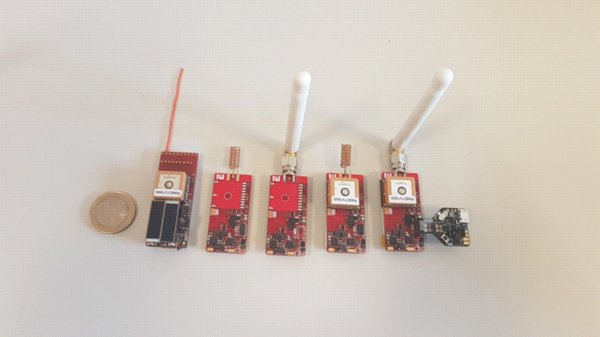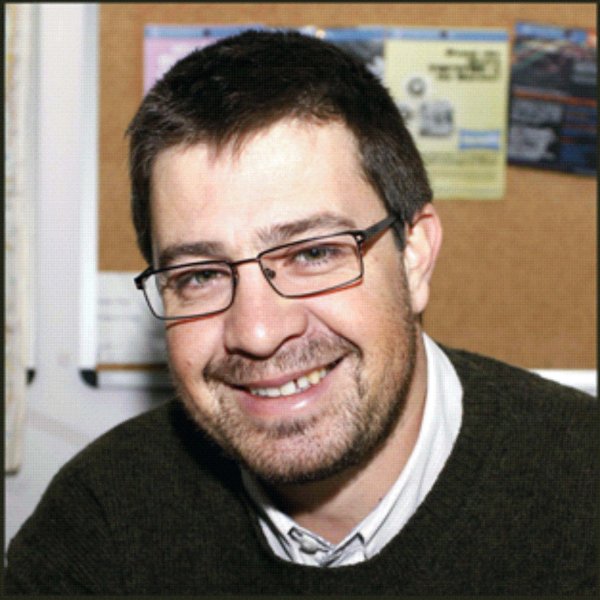Exhibitors 2018
- HOME AUTOMATION
- ROBOTICS
- YOUNG MAKERS (< 18)
- OPEN SOURCE
- 3D PRINTING
- DRONES
- EDUCATION
- FABRICATION
- HACKS
- NEW MANUFACTURING
- SCIENCE
- ENERGY & SUSTAINABILITY
- ART
- INTERNET OF THINGS
- MUSIC & SOUND
- RECYCLING & UPCYCLING
- KIDS & EDUCATION
- ARTISANS & NEW CRAFT
- CULTURAL HERITAGE
- GAMES
- WELLNESS & HEALTHCARE
- FASHION & WEARABLES
- FOOD & AGRICULTURE
- BIOLOGY
- 3D SCANNING
- AEROSPACE
- STEAM PUNK
- ARTIFICIAL INTELLIGENCE
- ARDUINO
- CROWDFUNDING
Ultra low power sensor board for wild animal tracking
This device architecture node for Wireless Sensor Network combines an ultra low power sleep mode and a long range communication capability. The board components have been divided in four powering sections: the GPS, the RF booster, the sensors and the flash memory. The controller can selectively control the activation of each section according to the application requirements and to energy accumulated in the supercapacitor.
The device software is specifically designed for the CC1310 microcontroller embedding an innovative architecture. The CC1310 device combines a flexible low power RF transceiver with a powerful Cortex M3 microcontroller. Moreover a dedicated radio controller handles low-level RF protocol commands, ensuring ultra-low power and flexibility. Finally, the CC1310 device has excellent sensitivity and robustness performance.
A key component of the architecture is the Sensor Controller: it is a small CPU core highly optimized for low power consumption performing simple background tasks autonomously. A design based on the sensor controller can achieve a huge power saving even for a periodic simple ADC reading task.
A GPS tracker, temperature, humidity and UVB radiation sensors, and accelerometers have also equipped the sensor board.
The device software is specifically designed for the CC1310 microcontroller embedding an innovative architecture. The CC1310 device combines a flexible low power RF transceiver with a powerful Cortex M3 microcontroller. Moreover a dedicated radio controller handles low-level RF protocol commands, ensuring ultra-low power and flexibility. Finally, the CC1310 device has excellent sensitivity and robustness performance.
A key component of the architecture is the Sensor Controller: it is a small CPU core highly optimized for low power consumption performing simple background tasks autonomously. A design based on the sensor controller can achieve a huge power saving even for a periodic simple ADC reading task.
A GPS tracker, temperature, humidity and UVB radiation sensors, and accelerometers have also equipped the sensor board.
Italy
Pierpaolo Loreti, Massimiliano De Luca, Alexandro Catini, Lorenzo Bracciale, Gabriele Gentile, Corrado Di Natale
Pierpaolo Loreti is a researcher of the University of Rome "Tor Vergata" since 2006 and is part of the Department of Electrical Engineering. He teaches “Mobile Device Programming” and “Web Programming” classes of Internet Engineering Degree. Pierpaolo is part of Networking Group of Rome "Tor Vergata", coordinated by prof. Nicola Blefari-Melazzi and Giuseppe Bianchi, attended by a large group of researchers, graduate students, post-docs and undergraduates (http://netgroup.uniroma2.it/).
He received the Dr. Ing. (Laurea) degree cum Laude in Electronic Engineering in July 1998 and the PHD degree in Telecommunications and Microelectronics in June 2002, from the University of Rome Tor Vergata, Rome.
From 2002 to 2005 he has been researcher of CNIT Consortium. Since October 2006 he became Assistant Professor at the University of Rome "Tor Vergata", confirmed in the role in 2009. Since 1998 he has collaborated/collaborates with Co.Ri.Tel, RadioLabs, CNIT NITEL and participating and coordinating reserch activities in several National and Europeans projects.
The research activity of Pierpaolo Loreti was held in the area of wireless communication systems, both with regard to the aspect “system-design” and performance evaluation.
Pierpaolo Loreti has participated in the following funded projects: ROBMOD (ESA 1998), ACCORD (EC 1999), SUITED (EC 2000), ROBMODII (ESA 2000/2001), ULTRAWAVES (EC 2001), VICOM (MIUR 2002/2005) , DELIS (EC 2002), PENforCEC (EC 2008/2010), CAMEO (Filas 2010/2012), FLAVIA (EC 2010/2013), MGC (Filas 2011/2012), DSA-PLAT (Filas 2013/2015), LOGICOS (Filas 2014/2015), Superfluidity (H2020 2015/2016), ICN2020 (H2020 2016/2017).
Pierpaolo Loreti has authored more than 50 articles in journals and international conferences and he served as reviewers of numerous journals and conferences.
He received the Dr. Ing. (Laurea) degree cum Laude in Electronic Engineering in July 1998 and the PHD degree in Telecommunications and Microelectronics in June 2002, from the University of Rome Tor Vergata, Rome.
From 2002 to 2005 he has been researcher of CNIT Consortium. Since October 2006 he became Assistant Professor at the University of Rome "Tor Vergata", confirmed in the role in 2009. Since 1998 he has collaborated/collaborates with Co.Ri.Tel, RadioLabs, CNIT NITEL and participating and coordinating reserch activities in several National and Europeans projects.
The research activity of Pierpaolo Loreti was held in the area of wireless communication systems, both with regard to the aspect “system-design” and performance evaluation.
Pierpaolo Loreti has participated in the following funded projects: ROBMOD (ESA 1998), ACCORD (EC 1999), SUITED (EC 2000), ROBMODII (ESA 2000/2001), ULTRAWAVES (EC 2001), VICOM (MIUR 2002/2005) , DELIS (EC 2002), PENforCEC (EC 2008/2010), CAMEO (Filas 2010/2012), FLAVIA (EC 2010/2013), MGC (Filas 2011/2012), DSA-PLAT (Filas 2013/2015), LOGICOS (Filas 2014/2015), Superfluidity (H2020 2015/2016), ICN2020 (H2020 2016/2017).
Pierpaolo Loreti has authored more than 50 articles in journals and international conferences and he served as reviewers of numerous journals and conferences.
A1 (pav. 5)





















































































